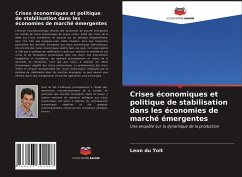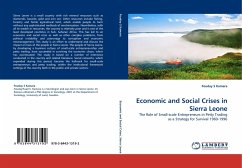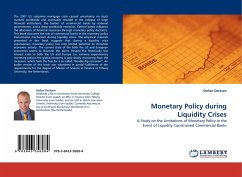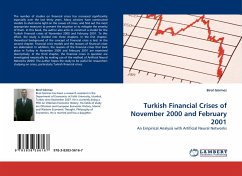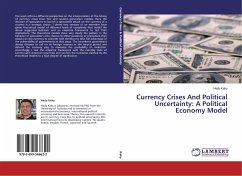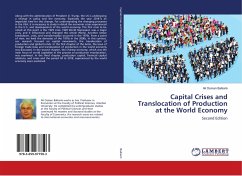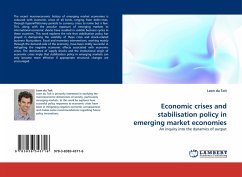
Economic crises and stabilisation policy in emerging market economies
An inquiry into the dynamics of output
Versandkostenfrei!
Versandfertig in 6-10 Tagen
32,99 €
inkl. MwSt.

PAYBACK Punkte
16 °P sammeln!
The recent macroeconomic history of emerging market economies is coloured with economic crises of all kinds, ranging from debt-crises, through hyperinflationary periods to currency crises to name but a few. This, along with the peculiar exposure of emerging markets to international economic shocks have resulted in volatile business cycles in these countries. This work explores the role that stabilisation policy has played in dampening the volatility of these crisis and shock-related business fluctuations. Fiscal and monetary interventions, working mainly through the demand-side of the economy,...
The recent macroeconomic history of emerging market economies is coloured with economic crises of all kinds, ranging from debt-crises, through hyperinflationary periods to currency crises to name but a few. This, along with the peculiar exposure of emerging markets to international economic shocks have resulted in volatile business cycles in these countries. This work explores the role that stabilisation policy has played in dampening the volatility of these crisis and shock-related business fluctuations. Fiscal and monetary interventions, working mainly through the demand-side of the economy, have been mildly succesful in mitigating the negative economic effects associated with economic crises. The dominance of supply shocks and the institutional origin of economic crises imply that stabilisation policy in emerging markets can only become more effective if appropriate structural changes are encouraged.




